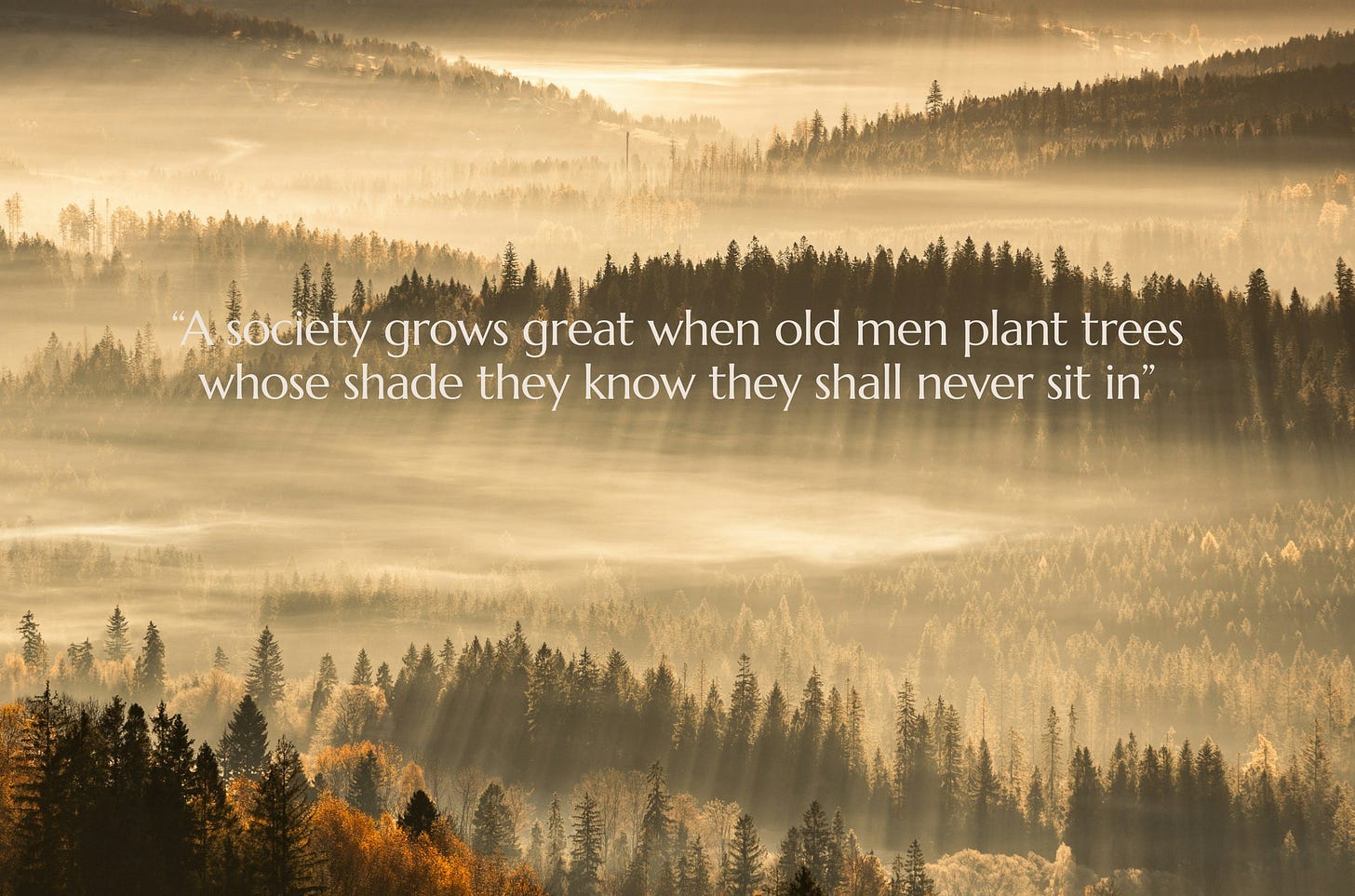I am new to the forum and wanted to share an initiative I am working on, The Wisdom Initiative, in order to see if it resonates with anyone here, if anyone has thoughts or feedback, or if anyone are aware of people or projects I should get in touch with. The initiative was launched in a post I published on substack about a month ago (The Wisdom Initiative - by Severin Sjømark). The post in full:
The Wisdom Initiative
It has been a while since I last wrote here. In part, this silence has been intentional—a period of inner work, of preparing to become a father, and striving to embody the truest version of myself. But another reason is a slow shift in my focus. Rather than continuing to apply the world view outlined in phase one of my work to diagnose and analyze the state of the world, I have been drawn to something deeper—something at the root of all meaningful approaches to our predicament: the cultivation of wisdom.
Wisdom cultivation is not about proposing solutions. It is about nurturing the capacities within and between us that allow for deeper discernment, long-term vision, and ethical action—qualities that our world seems to be in dire need of today. Unlike skills or capacities that are instrumentalized for other ends, wisdom is cultivated for its own sake. It is as such a virtue, and its decline in the world is evident in the challenges we face.
You can read a bit more about what I mean by wisdom below, but with this post I simply want to announce this new focus of mine, and what I am currently exploring. If we are to respond meaningfully to the crises of our time, it is not enough to prescribe solutions—we must rekindle a longing for something greater. As Antoine de Saint-Exupéry wrote:
If you want to build a ship,
don’t drum up the men to gather wood,
divide the work and give orders.Instead, teach them to yearn for the vast and endless sea.
I believe wisdom cultivation is akin to this yearning, a yearning that can bring with it transformation to our world, a transformation that cannot be planned out ahead or be reduced to solutions. The change we want to see is not the change we can name, it is the one we forge in the depths of our being.
Under the heading of The Wisdom Initiative , I am now exploring what forms working for cultivating wisdom again might take. Should it be a think tank that tries to impact policy creation, the public and sense making? Should it act as a guide for individuals or organizations looking to contribute to creating a safer, more balanced future? Should it work towards new communities where virtue and balance are foundational principles? Something else altogether?
I don’t have the answers to these questions—but I want to explore them together. If you feel called to this conversation, if wisdom resonates with you as something we need to cultivate anew, I invite you to share your thoughts. What does wisdom mean to you? How might we weave it back into the fabric of our world? Do you think such work as I have hinted at here could be valuable and sustainable? And what could The Wisdom Initiative become?
If even one of these questions stirs something within you, I hope you reach out. Below follows a bit more about what I think about wisdom.
Why Wisdom?
Wisdom is a capacity, a disposition, a quality that must be cultivated through community.
We are in the midst of a polycrisis—an entangled web of interconnected challenges. Climate change, biodiversity loss, and destructive incentives in politics and business are eroding the foundations of life on Earth. Simultaneously we are facing crises of culture, spirituality, and meaning, as well as existential threats from artificial intelligence and accelerating technologies. Steering our course toward a safer future requires radical change.
These changes cannot emerge from the same mindsets and societal structures that created the problems in the first place. We need a new approach—one that recognizes the whole, the interconnections, and the underlying dependencies between all aspects of society and life.
The Wisdom Initiative is founded on a holistic philosophy in which culture and values are not peripheral concerns—they are the very foundation of a society’s ability to self-moderate and sustain itself over time. If we wish to shape a viable future, we must cultivate virtues and long-term thinking—both within ourselves and in the structures we build.
At the heart of this work lies wisdom . Wisdom means making thoughtful, long-term choices that are not driven by short-term gain or immature notions of progress and growth. It is about breaking free from destructive incentives and traps that lead us to sacrifice human values for short-term gain.
But wisdom is not a rulebook—it cannot be reduced to a set of instructions, to be automated, mechanized or computed. Wisdom is a capacity, a disposition, a quality that must be cultivated through community . It cannot exist in isolation but is shaped through relationships, conversations, practices, and culture.
To be considered good ancestors, we must be willing to make choices that may not yield immediate rewards. The greatest influence we can have on the future lies in cultivating wise values, virtues, and resilience in community—through upbringing, education, and an advanced culture that fosters maturity and wisdom.
